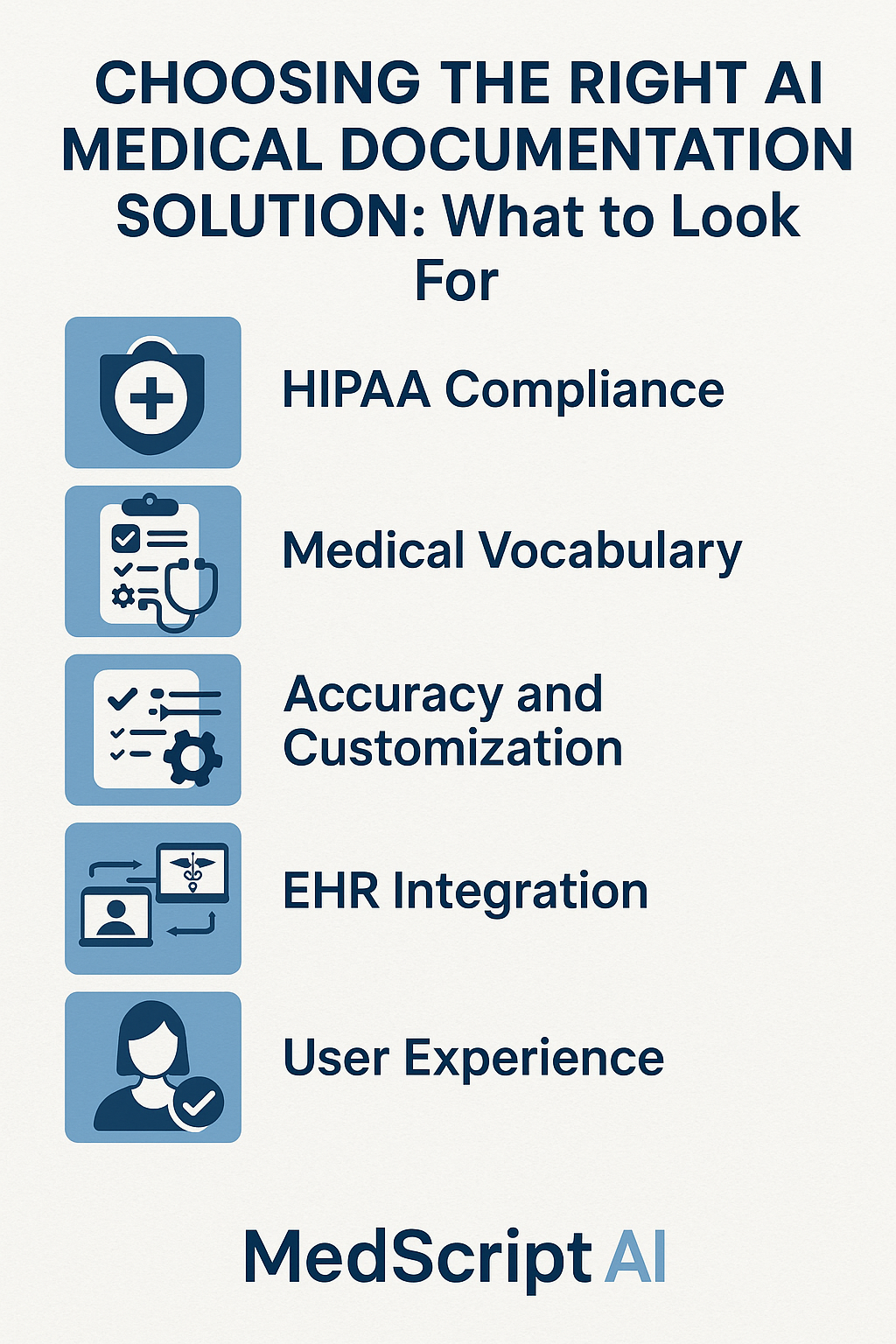With more AI medical documentation solutions entering the market, choosing the right platform can feel overwhelming.
To help you make an informed decision, here are the key factors you should consider:
1. HIPAA Compliance and Data Security
Patient privacy is non-negotiable. Ensure your AI solution is fully HIPAA-compliant, encrypts all data in transit and at rest, and offers robust access controls.
2. Medical Vocabulary and Specialty Support
Look for a platform trained on clinical datasets and terminology relevant to your specialty—whether it’s cardiology, orthopedics, or family medicine.
3. Accuracy and Customization
Ask vendors for accuracy benchmarks and examples. Does the system allow you to customize templates and workflows to match your preferences?
4. EHR and Practice Management Integration
The best AI documentation tools integrate with major EHRs so you can avoid double entry and maintain a single source of truth.
5. User Experience and Training
Choose a solution that’s intuitive and backed by responsive training and support to help your team adopt it smoothly.
Conclusion:
Selecting an AI medical documentation solution is an investment in your practice’s future. Taking the time to evaluate your options will pay dividends in productivity, compliance, and patient satisfaction.
